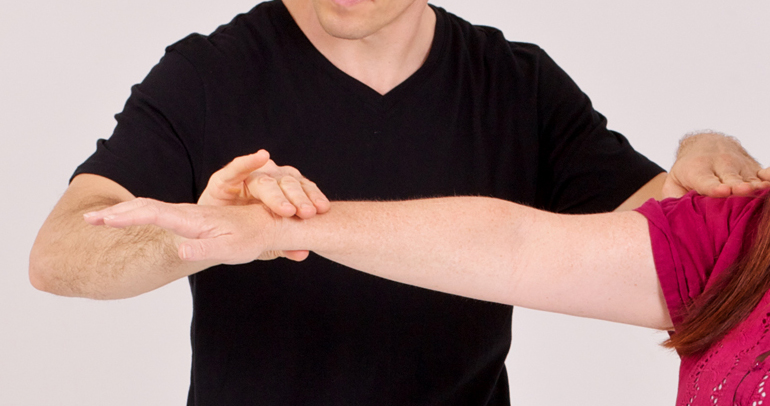June 29, 2015 Puzzle Piece
I am a Diplomat (DIBAK) of the ICAK or international College of Applied Kinesiology. The founder of using manual muscle testing in evaluation and treatment was George Goodheart, DC in 1964. He developed a diagnostic and treatment system called Applied Kinesiology (AK), which became the basis of other muscle testing groups.
Muscle testing is a system of evaluating how the body's nervous system reacts to its environment and various forms of stimuli. It is a study and application of functional neurology by the use of muscle testing for evaluation and treatment. Specific muscles are tested for clinical and diagnostic purposes, not just to determine muscle strength.

It can be used to evaluate structural faults, subluxations, fixations, nutritional status, active acupuncture points, neurological imbalances, stressed areas of the body, lymphatic stasis, craniosacral imbalance, active neurovascular points, stressed organ reflexes, etc., and can be used to determine correction of these imbalances.
Applied Kinesiology is a science and technology that has volumes written about it and thousands of practitioners utilizing it. Muscle Response Testing (MRT) can be used for many purposes and is not necessarily Applied Kinesiology.
Muscle Response Testing came out of AK and is also a diagnostic technique that is valuable to many procedures and treatments. It is a viable, efficient and effective tool for determining the body's needs in the many areas listed above. MRT is currently being used by many healing disciplines: Chiropractors, medical doctors, acupuncturists, naturopaths, osteopaths, holistic dentists, veterinarians and other practitioners. Many articles and books have been written on muscle testing.
For example, a practitioner gently pushes down on the patient's extended arm, which is resisting the downward pressure of this muscle test. If the nervous system is irritated for any reason, this may cause temporarily a short circuit in the nervous system. This will demonstrate the arm that previously tested strong to now go weak. This irritation can be from a toxic substance placed under the tongue, an acupuncture point, an active blocked neurovascular point, or an active reflex point being discovered relating to nutritional needs etc.
Even thinking of a traumatic emotional event can cause a muscle to weaken. One valuable use of the muscle test is to ask "yes/no" questions to the patient. You evaluate the response of the nervous system, looking for a strong muscle to go weak upon challenge. This reveals information about troubled areas in the body and how to treat them. If an answer is true, the muscle will remain strong. If the patient is telling an untrue statement, the previously tested strong muscle will weaken.
How Does It Work?
The body's energy system processes stimuli constantly. The nervous system must act and react instantly to keep us in health and wellness. Muscle testing gives us a way to evaluate/treat and to correlate with any other testing we do. There are literally thousands of actions and reactions going on simultaneously. In our offices, we do blood tests, saliva tests, urine/urine challenge testing, physical and neurological testing.
Additionally, in the "Brimhall Protocols", we utilize manual muscle testing on each patient each visit. A hair test reveals a two to three month gathering of information. Plasma blood testing tells us what is circulating at the time we took the sample and muscle testing gives us an instantaneous response to the many questions we can ask as stated previously. This effect we are measuring is similar to a lie detector test. The telling of a false statement causes physiological response that can be measured.
Muscle testing can be utilized to ask almost any question to make determinations about physiology, skeletal trauma, allergies, nutritional imbalances, emotional states, or other things that can affect the body or mind. This diagnostic tool seems to be only limited to the creativity of the practitioner's ability to ask the proper questions. Once the information is ascertained, muscle testing can be used to find out what the body or mind will respond to in terms of a resolution to the problem.
To learn more about muscle testing and it many uses, join us at one of our seminars and expand your abilities.